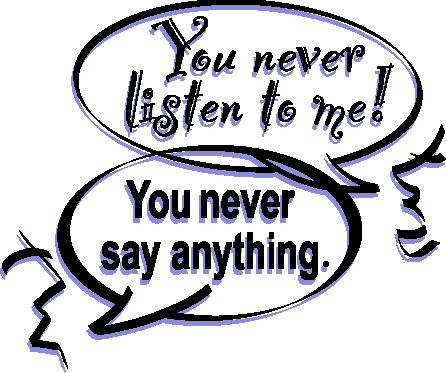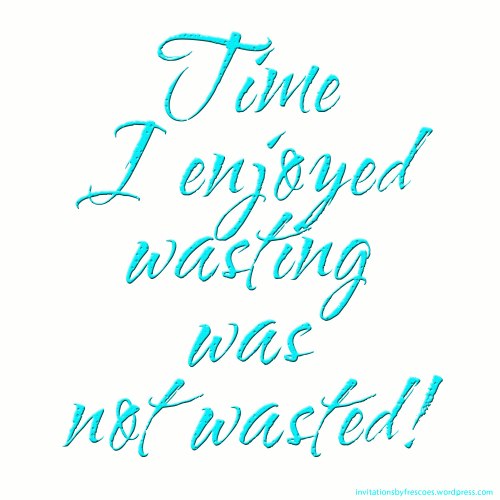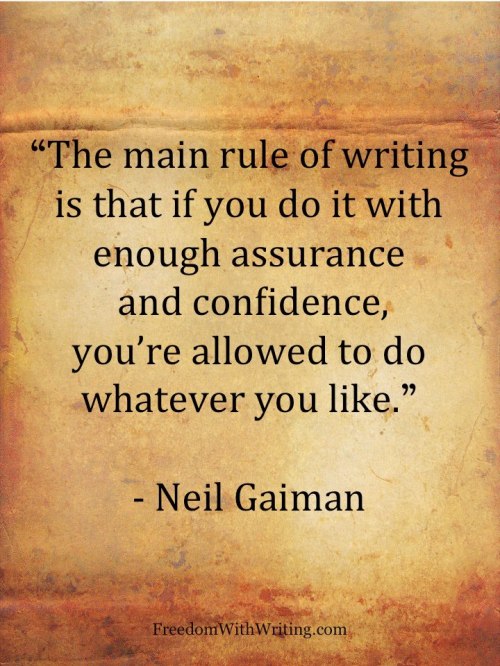
As I wrote that title, I thought, “Hm, that’s interesting. I like to write dialogue the best, but my stories evolve so that characters form last.” I don’t know why that seems interesting/weird, but it does.
ANYWAY, dialogue. Most people aren’t very good at it. Some very successful writers got by with being bad at it because they were such great storytellers. Robert Ludlum comes to mind; he was terrible at dialogue and a fan of very long soliloquies by his characters. But man, could he tell a story. Obviously people gave him a pass, and rightly so, although perhaps an editor could have helped him out a bit more.
In my twenties, I worked as a dialogue doctor for screenplays. That seems strange, if you know anything about screenplays, because they consist of two things: dialogue and action. There is virtually no description in screenplays, barring something like “DIVE BAR, NIGHT.” The director and set designer get to take that and make their scene. So one would think that screenwriters would be great at dialogue. Early screenwriters certainly were. Think of wonderful, witty old movies like “My Girl Friday” or any Katherine Hepburn/Spencer Tracy movie. But movies have moved on to being a great deal more dependent on action than dialogue over the last twenty years, and that’s opened up the script-doctor position in most studios.
Fast forward to my own writing. I still prefer writing screenplays to novels. The problem is that the indie movement hasn’t really reached the movie business. A lot of selling screenplays has to do with knowing somebody, or being at the right place at the right time. Conventional wisdom is that, unless you have multiple screenplays, don’t even pitch one. Conventional wisdom says that you won’t get a screenplay produced until you’ve had a screenplay produced. Given the political and incestuous nature of the whole industry, that’s a game I prefer not to play. There are some efforts to publish screenplays on Amazon, and Amazon itself does have a screenplay division where you can submit your screenplay for the chance of it being picked up. I’m not sure how well these options work yet — it’s a new thing.
But even if I don’t write many screenplays, I still love dialogue. Not surprisingly, I like the three elements of fiction in this order: dialogue, action, and description. When I wrote my first novel during NaNoWriMo in November, 2011, I don’t think the first 50 pages had any description at all, in my panic to “win.” I’m better now, but it’s still not really my thing. I definitely have to work at it.
Dialogue, however, is how my brain works. When I read, I hear it in my head. I don’t just read the words, I hear the words. So when I write dialogue, that’s how I write it. I hear how the people talk, and write it down, accents and poor diction and sloppy sentence structure and all.
If you find dialogue difficult, let me encourage you that it is something you can learn. It may never come easy or be your first love, but you can definitely improve. My lessons on dialogue were always the favorite of my writing classes, and I’ll share with you what I told my students.
* Eavesdrop. As an only child who is also an introvert, I spent my childhood eavesdropping! I listened at restaurants, listened at home, listened at parties, listened at Disney World, listened at airports. LISTEN to how people actually talk. One assignment I always give is for the student to go to a restaurant and eavesdrop on a table behind them. (The caveat is always that, if the conversation is obviously personal, please find another table!) Don’t look at the people, just listen. Try to imagine what they look like from how they are talking. How are they dressed? Are they big, small, tall, short, thin, fat, well groomed or shaggy? How old are they? Married or single? When you’ve got your description down, look and see if you were right. Then do it again, and again. Begin to pay attention to the people around you, to accents, to quirks, to humor, to the way people who know each other well talk versus the way strangers or business associates talk. Figure out who’s on a first date and who’s been married twenty years. Who’s a good listener and who just likes to hear themselves talk? When faced with a person who just likes to hear themselves talk, how do people respond?
* Read books with good dialogue. If characterization and dialogue are done well, you can tell who’s talking without the descriptors. One of the ones I always use in classes is Winnie the Pooh. Ask someone to read aloud a passage of dialogue in a book you’re familiar with and see if you can identify who’s talking. If you can, the writer did a good job expressing his characters through dialogue. Children and YA books are sometimes better at this than adult books: Winnie the Pooh, Charlie and the Chocolate Factory, The Chronicles of Narnia, The Lord of the Rings. Janet Evanovich’s Stephanie Plum series is full of great dialogue and distinct characters. Characters don’t just have a particular hair color, a particular way of dressing, and a specific job. They have a voice. Learn to give them a distinct one.
* Read books with bad dialogue. As I said, Robert Ludlum was bad at it. Read some of his books (not these new ones that are written “for” Robert Ludlum, who has been dead fifteen or twenty years, but his actual books, like the Bourne books, The Parsifal Mosaic, The Gemini Contenders, etc.). Watch Star Wars – one of the reasons the acting was so bad (although the movies are still great) is that the dialogue was so bad that there was no way for the actors to look good saying their lines. Bad dialogue can ruin a book (although it doesn’t have to if the story is strong). It can be a good teacher. Signs of bad dialogue are:
- Long runs of it, essentially lecturing or expostulating on something for much longer than any real human outside of a lecture hall would do.
- Wording and phrases that no person like the character would ever say. Example: a child or teenager would almost never use a word like “accomplished” to express how good someone is at something. Having a child use a word like that, unless the child’s character is a prodigy or otherwise obnoxiously advanced human, jars the reader out of the story because his brain immediately calls foul.
- Everyone sounds the same. Have you ever had to go back through a piece of dialogue where there are no “he said,” “she said” and count back until you can figure out who’s saying what? That’s bad dialogue.
Good dialogue both advances the story and advances the character. It also allows the reader to suspend disbelief. As a fiction writer, your number one goal is to get your reader to suspend their disbelief in your concocted story and buy into what you are saying. You want them to believe it while they’re reading it, even when their rational mind knows there are no such things as aliens or wizards or elves or gorgeous, multi-lingual, lethal triple agents. Anything that pulls them out of your story ruins that, and will increase the chances that the reader doesn’t enjoy the book – or comes away with something like my comment on Ludlum: great story but the dialogue sucks.
What’s your favorite of the three parts of writing? Any tips on how to improve the other two?







